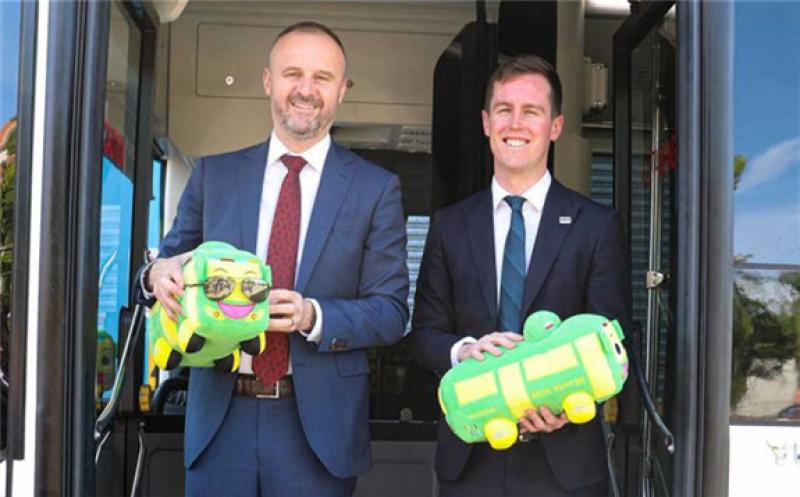
As Australia faces unprecedented weather conditions causing devastating fires across NSW and Queensland whipping up calls from the public for more effective action on climate change in the states and on the federal level, the ACT has been resolutely leading the way in strategies to address the rising carbon emissions.
In October the ACT achieved its 100% renewable electricity target by 2020 two months with the start of deliveries of power from the Hornsdale Stage 3 109MW wind farm in South Australia.
It is now looking to reduce the next largest source of carbon emissions, transport, which now makes up 60% of the ACT’s emissions thanks to the decarbonisation of the ACT grid, as part of a wider plan to achieve net zero emissions by 2045.
Introduced by ACT chief minister Andrew Barr and minister for transport Chris Steel on Monday, the Yutong E12 electric bus is the first in what will eventually be an entirely electric bus fleet for the ACT.
“The Government is committed to transitioning our public transport fleet to zero emissions, reducing air pollution and providing a reliable and comfortable service for users,” minister Steel said in a statement to the press.
“This electric bus will provide us with valuable operation information to guide the preparation of a Transition Plan for zero-emission bus fleet and prepare for the purchase of more electric buses at scale.
“This is a more modern electric bus than those previously trialled in 2017 and has already proved successful in other jurisdictions.”
With an approximate 400km driving range before needing to recharge at the Tuggeranong Depot, the new Yutong Electric E12 bus will operate all over the Australian capital city.
With the capacity carry 57 people, the bus can also be configured to meet Transport Canberra’s operational requirements in terms of range, charging time and increased passenger capacity.
The purchase of the bus followed a 12 month trial undertaken by the ACT which found that although under-servicing of the electric bus in the trial lead to some misleading outcomes, the introduction of suitable e-buses to the ACT fleet was viable.
A full roadmap for the ACT’s Zero-Emission Transition Plan is now being developed by the department which guide the ACT in its mission to switch its diesel bus fleet to a 100% zero-emissions.
“The Plan we are developing will ensure that we have the required infrastructure, investment and skills to scale up our zero-emissions bus fleet,” Minister Steel said.